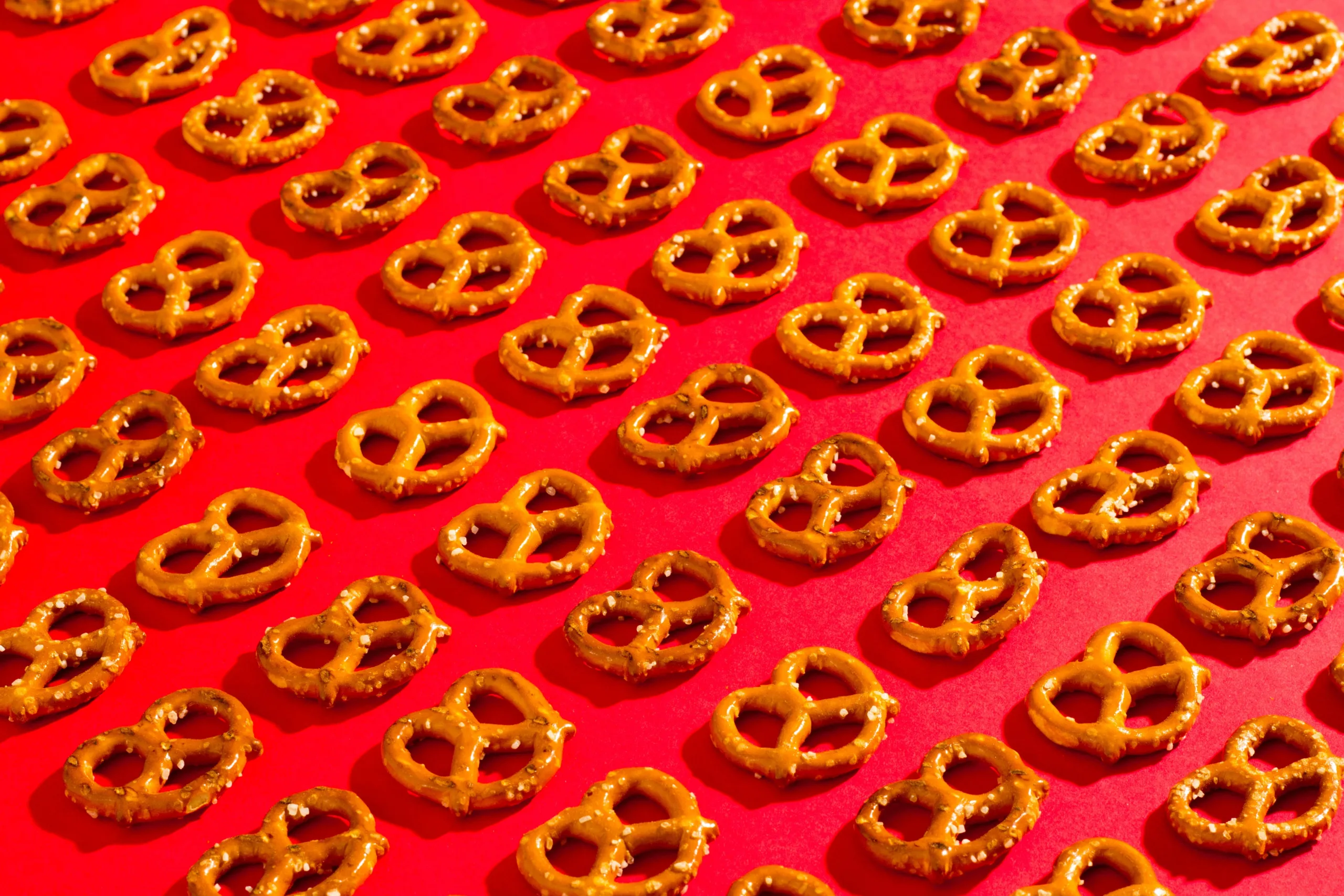As a cat owner, you may find yourself wondering whether your feline companion can partake in some of your favorite snacks. Pretzels, with their crunchy texture and tempting flavors, might catch your cat’s attention as well. However, when it comes to feline dietary needs, not all human foods are safe or suitable for cats. In this article, we will explore the safety of cats eating pretzels, discuss their ability to consume salt, delve into snacks that are safe for cats, and address the question of whether cats can have salty snacks or eat chips.
For more about cats click here
Can Cats Eat Pretzels?
No, cats should not eat pretzels. While pretzels are not inherently toxic to cats, they are not a suitable food for felines. Pretzels are typically high in salt, and cats have different dietary requirements compared to humans. Excessive salt intake can be harmful to cats and lead to health issues such as sodium ion poisoning, dehydration, and kidney problems.
Furthermore, pretzels are made from ingredients like flour, which is not a part of a cat’s natural diet. Cats are obligate carnivores, meaning their diets should primarily consist of animal-based proteins. Offering pretzels to your cat may result in digestive upset, and the crunchy texture could also pose a choking hazard.
Can Cats Eat Salt?
In small quantities, cats can tolerate some salt in their diet. Cats need a small amount of sodium for essential bodily functions, but they already receive the necessary sodium from their regular cat food. Excess salt can lead to sodium ion poisoning, a condition that can cause symptoms like vomiting, diarrhea, excessive thirst, and lethargy. Therefore, it’s crucial to avoid intentionally giving your cat salty foods or high-sodium snacks.
What Snacks Can Cats Eat?
When it comes to treating your cat to snacks, it’s essential to opt for feline-friendly options. Some safe and suitable snacks for cats include:
- Commercial Cat Treats: Look for specially formulated cat treats available in pet stores. These treats are designed to meet feline dietary requirements and are available in various flavors and textures to please your cat’s taste buds.
- Cooked Meat: Plain, cooked, and unseasoned meat can be offered to cats as an occasional treat. Ensure that the meat is free from seasonings, onion, garlic, and other harmful ingredients.
- Cooked Fish: Small amounts of cooked fish, such as plain boiled or grilled fish, can be a delightful treat for cats. Ensure the fish is boneless and does not contain any added seasonings.
- Fresh Catnip: Some cats enjoy fresh catnip leaves as a natural and stimulating treat. Offer catnip sparingly to avoid overstimulation.
Remember that treats should not make up a significant portion of your cat’s diet and should be offered in moderation to avoid weight gain and nutritional imbalances.
Can Cats Have Salty Snacks? Can Cats Eat Chips?
Cats should not have salty snacks or eat chips. As obligate carnivores, cats have specific dietary needs that are best met with a balanced and nutritionally complete cat food diet. Human snacks like chips are typically high in salt, fat, and other seasonings that can be harmful to cats.
Feeding your cat salty snacks can lead to adverse health effects, including digestive upset and sodium ion poisoning. Additionally, the crunchy texture of chips can pose a choking hazard to cats, making them an unsuitable treat.
FAQs about Can Cats Eat Pretzels?
1. My cat accidentally ate a pretzel. What should I do? If your cat consumed a small amount of pretzel, monitor them for any signs of digestive upset or lethargy. Ensure they have access to fresh water, and avoid offering pretzels or other salty snacks in the future.
2. Can I share a pretzel with my cat as a special treat? No, it’s best not to share pretzels or other salty snacks with your cat. Stick to feline-friendly treats specifically formulated for their dietary needs.
3. What are the signs of sodium ion poisoning in cats? Signs of sodium ion poisoning in cats may include vomiting, diarrhea, increased thirst and urination, lethargy, and disorientation. If you suspect your cat has ingested a significant amount of salt or salty food, seek immediate veterinary attention.
4. How often can I give treats to my cat? Treats should only make up a small portion of your cat’s diet. Offer treats in moderation, usually a few times a week, to prevent overindulgence and maintain a balanced diet.
5. Are there any human snacks that cats can eat safely? While some human foods are safe for cats in small amounts, it’s best to stick to feline-specific treats and avoid offering human snacks. Always consult with your veterinarian before introducing any new foods into your cat’s diet.
In conclusion, cats should not eat pretzels or other salty snacks, as they can be harmful to their health. Stick to feline-friendly treats and a balanced cat food diet to ensure your furry friend’s well-being and happiness.
Click here for more
